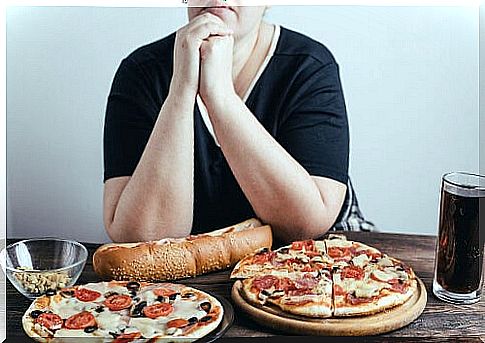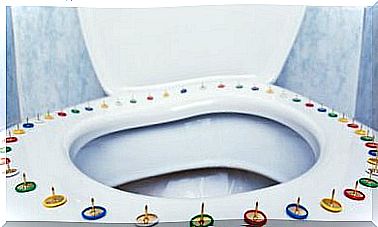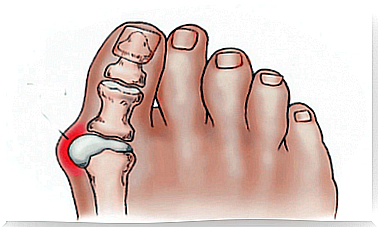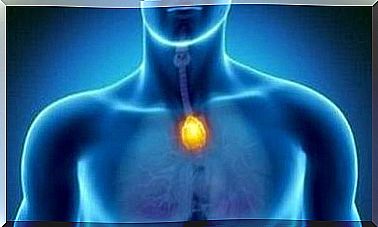You Can’t Stop Eating: Reasons And What To Do

Are you hungry at any time? Can’t you avoid looting the refrigerator in the middle of the night? Do you eat more than you want and then feel guilty? If that’s the case, if you feel like you can’t stop eating, your problem is likely emotional, at least in large part.
Feeling that you are unable to control your food can make you anxious because you know that you are not only harming your appearance but your health as well. Still, you don’t know how to stop. In any case, the solution is to change your relationship with food. Today we’ll tell you what to do if you can’t stop eating.
Why can’t you stop eating?
Nutrition is an essential survival function. This is the body’s way of acquiring the nutrients it needs to function daily. The problem is only related to the amount of food consumed, and especially to their selection.
Often, people who find it difficult to eat excessively choose foods that are low in nutritional value and high in calories. But what is it that is leading to this harmful behavior?
No connection to your own body
One of the reasons for overeating is that you can not identify your own body sensations. At birth, everyone is programmed to recognize the signs of hunger and act accordingly. Therefore, the baby cries to receive food.
However, over time, the connection with these interoceptive feelings is lost. This happens for a variety of reasons. First of all, food becomes associated with meetings, company and interaction with others.
Eating becomes a social and enjoyable activity that goes beyond its nutritional function.
On the other hand, the current fast pace of life and stress often do not allow you to stop and listen to your own body. As a consequence, the ability to recognize when we feel real hunger and when we feel bored or want to spend time in a social bond decreases.

Emotional hunger
Another aspect that keeps you from wanting (and not starving) eating is emotional eating. This term refers to the fact that food is used as a regulator of emotions. Have you noticed that you eat more when you feel anxious, sad, overwhelmed or disappointed?
This has an explanation. Namely, some foods stimulate the pleasure circuit in the brain as they release various neurotransmitters that produce pleasant sensations. Consequently, you feel relief, satisfaction and happiness after consuming them.
Unfortunately, this is a temporary condition and by no means is it an effective or permanent solution. In a short time, the pleasant effects wear off and unresolved emotions reappear. But now they feel guilty about eating out of control.
Restrictive diets
If you’ve been struggling with eating problems for a long time, you’ve probably experienced a paradoxical situation. A very restrictive diet can increase your impulse and uncontrolled urge to eat unhealthy food.

A diet that is too restrictive can have a rebound effect. This means that there is a compulsive behavior following the diet of eating what was forbidden. An overly rigid eating style, in which eating different foods is forbidden, leads to an increase in anxiety about eating. For this reason, such people cannot follow a diet without falling into compulsive eating behavior.
It even happens that after the end of the diet, they regain the weight they lost with so much effort. The point is, the body demands what was so radically forbidden and restricted.
What can you do to stop eating?
Of course, food is essential for survival. For the same reason, it is not an avoidable activity as is the case with other types of addiction. The solution in this case is to modify your own relationship with food, restore its nutritional function and start a conscious diet.
To do this, first of all, you need to re-establish contact with your body and learn to listen to and interpret the signals it sends. In other words, it’s about recognizing when we’re feeling real hunger, and when it might be emotional hunger caused by stress or anxiety.
On the other hand, it is important to learn and develop useful and effective strategies for dealing with negative emotional states.
The goal is to stop using food as a regulator of emotions, so you need to learn other ways to deal with them. Emotional ventilation, writing therapy, or meditation practice are helpful alternatives.
Finally, establish a healthy relationship with the food. This means you must stop seeing them as enemies or as comforts. Remember that food is only the fuel your body needs and learn to choose it based on your nutritional needs.
Eat healthy and balanced without forbidding or demonizing any food group. Eat in moderation and, above all, be aware of what you are doing.









